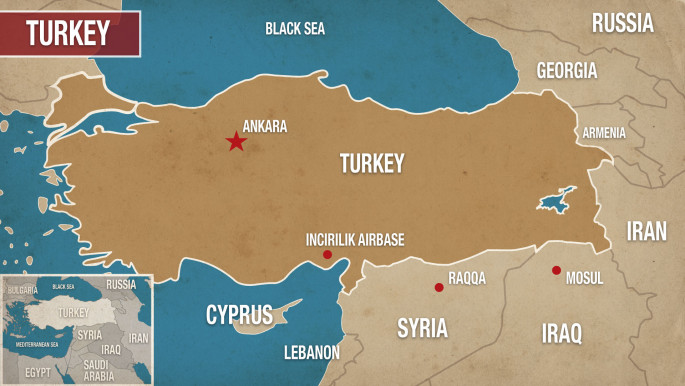Germany scoping alternatives to Turkey airbase as spat lingers
Germany is currently eyeing alternate locations in the Middle East to position troops currently stationed at a military base in Turkey in the midst of a diplomatic spat between Berlin and Ankara.
German troops are currently stationed at Incirlik air base in south-central Anatolia – used by the US-led coalition to conduct aerial missions targeting the Islamic State group in Syria and Iraq.
A lingering spat
However, their continued use of the base has been jeopardised by a snowballing quarrel related to recent decisions made by German local authorities to ban Turkish referendum rallies aimed at drumming up support for an April vote in which Turkish President Recep Tayyip Erdogan is seeking to expand his presidential powers.
The bans evoked anger from Turkish politicians, with inflammatory rhetoric lead by Erdogan himself who accused Berlin of adopting "Nazi measures".
German authorities have since accused Ankara of spying on Turkish nationals and organisations in Germany.
Eyeing up alternatives
According to a report published in Germany daily Die Welt on Wednesday the German government is assessing eight alternatives to Incirlik: three sites in both Kuwait and Jordan, and a further two in Cyprus (Akrotiri, and Pahpos).
 |
| Click to enlarge |
These sites have, according to a German government statement, been visited by German officials "within the framework of a military exploration for the purpose of reviewing their fundamental suitability".
Figures from within the Left Party have criticised the German government for not doing more to relocate German troops based in Incirlik following recent souring relations between Berlin and Ankara.
But concern has also been raised by politicians closer to Merkel's ruling Christian Democrat party.
Earlier this month Florian Hahn, spokesman for security and foreign policy of the Christian Social Union said that given tensions between Berlin and Ankara it had become "increasingly uncertain that the Turkish government can and will guarantee the protection of our soldiers in Incirlik".
However, according to Die Welt discussions concerning the use of alternative facilities remain in their infancy. Officially the German government says that "no conversations" have taken place "with regards to a possible stationing".
Contextualising Incirlik quarrels
Germany is not the only country to face questions over its use of Incirlik airbase.
Turkish politicians have notably also said that the US' use of the base could be reconsidered, in an implicit critique of the support shown by Washington to Kurdish forces in Syria currently advancing on the IS-held city of Raqqa.
US Secretary of State Rex Tillerson is due to hold talks with Turkish officials in Ankara on Thursday, with the continued use of Incirlik by the US, and NATO allies likely to figure on the agenda.
Around 5,000 US air force personnel are stationed at Incirlik. The number of German troops at the base is significantly lower, standing at around 250 personnel.
In addition to the recent war of words between Berlin and Ankara regarding bans placed on holding Turkish referendum rallies in Germany, relations have been strained since last year's failed July 15 military coup in Turkey.
Authorities in Berlin are demanding the release of Deniz Yucel, a German journalist with Die Welt detained in Istanbul over reports written in the aftermath of the attempted coup, in a wave of far ranging crackdowns that have been criticised by rights groups, and by German Chancellor Angela Merkel.
Meanwhile Ankara has demanded that Berlin extradite alleged supporters of Fethullah Gulen - who Turkish officials say was the mastermind of the July 15 coup attempt. This request that has been been turned down by German officials.
Before the attempted coup took place a previous spat between Berlin and Ankara – related to a German parliament resolution recognising the massacre of Armenians by Ottoman forces in 1915 as a genocide – also saw German politicians temporarily barred from visiting troops positioned at Incirlik.



